Scientific Committee:
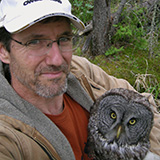 James Duncan, born in Montréal, Québec, obtained a B.Sc. (1982 – Honours Zoology – U. of Guelph), a B.Ed. (1983 – Biology/Chemistry – Queen’s U.), a M.Sc. (1985 – Zoology – McGill U.) and a Ph.D. (1992 – Zoology – U. of Manitoba). He has worked since 1992 in conservation biology and is now Director, Manitoba Wildlife and Fisheries Branch. James has researched owls for over 35 years and has published numerous scientific papers, books and symposium proceedings on owls from around the world. He also supervises graduate students studying owls and other birds of prey as adjunct professor at two universities.
James Duncan, born in Montréal, Québec, obtained a B.Sc. (1982 – Honours Zoology – U. of Guelph), a B.Ed. (1983 – Biology/Chemistry – Queen’s U.), a M.Sc. (1985 – Zoology – McGill U.) and a Ph.D. (1992 – Zoology – U. of Manitoba). He has worked since 1992 in conservation biology and is now Director, Manitoba Wildlife and Fisheries Branch. James has researched owls for over 35 years and has published numerous scientific papers, books and symposium proceedings on owls from around the world. He also supervises graduate students studying owls and other birds of prey as adjunct professor at two universities.
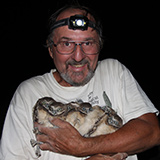 During the last 40 years, David H. Johnson has been focused at senior scientific, legal, and professional management applications in the fields of wildlife, freshwater fish, wildlife and fish habitat, forestry, marine ecology, and civil engineering. But his passion has always been for owls. His research on owls began in 1976, with a key role in Spotted Owl conservation efforts in the new US from 1993-1996. In 2001, David started the Global Owl Project, a consortium of about 450 people working on the science and conservation of owls in 66 countries.
During the last 40 years, David H. Johnson has been focused at senior scientific, legal, and professional management applications in the fields of wildlife, freshwater fish, wildlife and fish habitat, forestry, marine ecology, and civil engineering. But his passion has always been for owls. His research on owls began in 1976, with a key role in Spotted Owl conservation efforts in the new US from 1993-1996. In 2001, David started the Global Owl Project, a consortium of about 450 people working on the science and conservation of owls in 66 countries.
 Dries Van Nieuwenhuyse is thought leader on the impact of technology and statistics on the decision-making processes of organizations in the Benelux. He is involved as a coach to executives to optimize decision-making and its underlying processes in organizations. Dries lectures on Performance Management, Business and Analytical Intelligence at EHSAL Management School (Odisee), Thomas More (Mechelen). He is also programme director for Corporate Performance Management at the EHSAL Management School (Odisee). He is Fellow of the Hogenheuvelcollege (Katholieke Universiteit Leuven) and is researcher at the Thomas More Business Intelligence Competency Center. Dries studies and publishes on Little Owls (Athene noctua) and Red-backed Shrikes (Lanius collurio). He co-authored the Little Owl monography (Cambridge University Press) and several books on Little Owls and shrikes in Dutch.
Dries Van Nieuwenhuyse is thought leader on the impact of technology and statistics on the decision-making processes of organizations in the Benelux. He is involved as a coach to executives to optimize decision-making and its underlying processes in organizations. Dries lectures on Performance Management, Business and Analytical Intelligence at EHSAL Management School (Odisee), Thomas More (Mechelen). He is also programme director for Corporate Performance Management at the EHSAL Management School (Odisee). He is Fellow of the Hogenheuvelcollege (Katholieke Universiteit Leuven) and is researcher at the Thomas More Business Intelligence Competency Center. Dries studies and publishes on Little Owls (Athene noctua) and Red-backed Shrikes (Lanius collurio). He co-authored the Little Owl monography (Cambridge University Press) and several books on Little Owls and shrikes in Dutch.
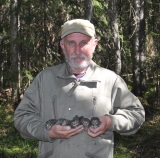
Erkki Korpimäki obtained M.Sc. in 1978 and Ph.D. in 1981 at Univ. of Oulu, Finland. He has worked since 1996 as the professor in animal ecology at the Department of Biology, Univ. of Turku, Finland. He has published >290 articles in refereed international scientific journals and supervised 27 Ph.D. theses. Most of these have investigated population dynamics, diet composition, reproductive effort and success, hatching asynchrony, blood parasites, survival and dispersal of owls and diurnal raptors living in highly fragmented boreal forests and agricultural areas of Finland. The main owl species studied have been the Boreal Owl, Eurasian Pygmy-Owl, Long-eared Owl, Short-eared Owl, Ural Owl, and Eurasian Eagle-Owl. His research team has also studied interactions of owls and diurnal raptors with prey species, the influence of owls and diurnal raptors on population densities of small mammals, diet selection of these avian predators as well as the effects of owl predation risk on vertebrate prey. Moreover, he has investigated intra-guild predation among owls and diurnal raptors and applied these results to advise the establishment of nest-box networks for small and large owl species. His studies have often included a marked conservation approach. Prof. Korpimäki is the corresponding author of the book on ecology, behavior, and conservation of Boreal owls published by Cambridge Univ. Press, UK.
 Prof. Yosef is involved in many research and conservation projects in several countries across the globe. In the past decade, Prof. Yosef has conducted Environment Impact Studies (EIS) in Mongolia, India, Israel and Jamaica. His focus for the past 35 years have been varied and range from True Shrikes and raptors to tigers and leopards. He has also published on several species of owls – Little Owl, Long-eared Owl, and Hume’s Tawny Owl (Israel), Burrowing Owl (USA), Spotted Owl, Forest Owlet, Rock Eagle Owl, Mottled Wood Owl (India), Eagle Owl (Mongolia), Tawny Owl (Czech Republic); and is at present working on a nest-box project of the endemic Cyprus Scops Owl.
Prof. Yosef is involved in many research and conservation projects in several countries across the globe. In the past decade, Prof. Yosef has conducted Environment Impact Studies (EIS) in Mongolia, India, Israel and Jamaica. His focus for the past 35 years have been varied and range from True Shrikes and raptors to tigers and leopards. He has also published on several species of owls – Little Owl, Long-eared Owl, and Hume’s Tawny Owl (Israel), Burrowing Owl (USA), Spotted Owl, Forest Owlet, Rock Eagle Owl, Mottled Wood Owl (India), Eagle Owl (Mongolia), Tawny Owl (Czech Republic); and is at present working on a nest-box project of the endemic Cyprus Scops Owl.
 Prof. Dr. Satish A.Pande (MD, DNB, Ph.D., FMASci., FLS) is the Director of Ela Foundation and Organizing Secretary of WOC-India, 2019. He is an Interventional Radiologist, Sonologist and Ornithologist.
Prof. Dr. Satish A.Pande (MD, DNB, Ph.D., FMASci., FLS) is the Director of Ela Foundation and Organizing Secretary of WOC-India, 2019. He is an Interventional Radiologist, Sonologist and Ornithologist.Editorial Committee:
 Prof. Dr. Satish A.Pande (MD, DNB, Ph.D., FMASci., FLS) is the Director of Ela Foundation and Organizing Secretary of WOC-India, 2019. He is an Interventional Radiologist, Sonologist and Ornithologist.
Prof. Dr. Satish A.Pande (MD, DNB, Ph.D., FMASci., FLS) is the Director of Ela Foundation and Organizing Secretary of WOC-India, 2019. He is an Interventional Radiologist, Sonologist and Ornithologist. Prof. Yosef is involved in many research and conservation projects in several countries across the globe. In the past decade, Prof. Yosef has conducted Environment Impact Studies (EIS) in Mongolia, India, Israel and Jamaica. His focus for the past 35 years have been varied and range from True Shrikes and raptors to tigers and leopards. He has also published on several species of owls – Little Owl, Long-eared Owl, and Hume’s Tawny Owl (Israel), Burrowing Owl (USA), Spotted Owl, Forest Owlet, Rock Eagle Owl, Mottled Wood Owl (India), Eagle Owl (Mongolia), Tawny Owl (Czech Republic); and is at present working on a nest-box project of the endemic Cyprus Scops Owl.
Prof. Yosef is involved in many research and conservation projects in several countries across the globe. In the past decade, Prof. Yosef has conducted Environment Impact Studies (EIS) in Mongolia, India, Israel and Jamaica. His focus for the past 35 years have been varied and range from True Shrikes and raptors to tigers and leopards. He has also published on several species of owls – Little Owl, Long-eared Owl, and Hume’s Tawny Owl (Israel), Burrowing Owl (USA), Spotted Owl, Forest Owlet, Rock Eagle Owl, Mottled Wood Owl (India), Eagle Owl (Mongolia), Tawny Owl (Czech Republic); and is at present working on a nest-box project of the endemic Cyprus Scops Owl.
 James Duncan, born in Montréal, Québec, obtained a B.Sc. (1982 – Honours Zoology – U. of Guelph), a B.Ed. (1983 – Biology/Chemistry – Queen’s U.), a M.Sc. (1985 – Zoology – McGill U.) and a Ph.D. (1992 – Zoology – U. of Manitoba). He has worked since 1992 in conservation biology and is now Director, Manitoba Wildlife and Fisheries Branch. James has researched owls for over 35 years and has published numerous scientific papers, books and symposium proceedings on owls from around the world. He also supervises graduate students studying owls and other birds of prey as adjunct professor at two universities.
James Duncan, born in Montréal, Québec, obtained a B.Sc. (1982 – Honours Zoology – U. of Guelph), a B.Ed. (1983 – Biology/Chemistry – Queen’s U.), a M.Sc. (1985 – Zoology – McGill U.) and a Ph.D. (1992 – Zoology – U. of Manitoba). He has worked since 1992 in conservation biology and is now Director, Manitoba Wildlife and Fisheries Branch. James has researched owls for over 35 years and has published numerous scientific papers, books and symposium proceedings on owls from around the world. He also supervises graduate students studying owls and other birds of prey as adjunct professor at two universities.
 During the last 40 years, David H. Johnson has been focused at senior scientific, legal, and professional management applications in the fields of wildlife, freshwater fish, wildlife and fish habitat, forestry, marine ecology, and civil engineering. But his passion has always been for owls. His research on owls began in 1976, with a key role in Spotted Owl conservation efforts in the new US from 1993-1996. In 2001, David started the Global Owl Project, a consortium of about 450 people working on the science and conservation of owls in 66 countries.
During the last 40 years, David H. Johnson has been focused at senior scientific, legal, and professional management applications in the fields of wildlife, freshwater fish, wildlife and fish habitat, forestry, marine ecology, and civil engineering. But his passion has always been for owls. His research on owls began in 1976, with a key role in Spotted Owl conservation efforts in the new US from 1993-1996. In 2001, David started the Global Owl Project, a consortium of about 450 people working on the science and conservation of owls in 66 countries.
 Dries Van Nieuwenhuyse is thought leader on the impact of technology and statistics on the decision-making processes of organizations in the Benelux. He is involved as a coach to executives to optimize decision-making and its underlying processes in organizations. Dries lectures on Performance Management, Business and Analytical Intelligence at EHSAL Management School (Odisee), Thomas More (Mechelen). He is also programme director for Corporate Performance Management at the EHSAL Management School (Odisee). He is Fellow of the Hogenheuvelcollege (Katholieke Universiteit Leuven) and is researcher at the Thomas More Business Intelligence Competency Center. Dries studies and publishes on Little Owls (Athene noctua) and Red-backed Shrikes (Lanius collurio). He co-authored the Little Owl monography (Cambridge University Press) and several books on Little Owls and shrikes in Dutch.
Dries Van Nieuwenhuyse is thought leader on the impact of technology and statistics on the decision-making processes of organizations in the Benelux. He is involved as a coach to executives to optimize decision-making and its underlying processes in organizations. Dries lectures on Performance Management, Business and Analytical Intelligence at EHSAL Management School (Odisee), Thomas More (Mechelen). He is also programme director for Corporate Performance Management at the EHSAL Management School (Odisee). He is Fellow of the Hogenheuvelcollege (Katholieke Universiteit Leuven) and is researcher at the Thomas More Business Intelligence Competency Center. Dries studies and publishes on Little Owls (Athene noctua) and Red-backed Shrikes (Lanius collurio). He co-authored the Little Owl monography (Cambridge University Press) and several books on Little Owls and shrikes in Dutch.

Dr. Suruchi Pande.
Ph.D. (Bio-Ethics) and Ph.D. (Ethno-Ornithology).
She is one of the country’s foremost Ethno-Ornithologists. Till date, she has authored 70 books on Sanskrit literature, philosophy and nature conservation. She is the recipient of several awards. She has won the ‘Award for excellence in Literature’ from the Government of Maharashtra for her book for the promotion of conservation and folk literature awareness amongst children. She has translated several books from English and Bengali into Marathi. She has been the scholar of ‘Ramakrishna Mission Institute of Culture’, Kolkata twice. She has worked with ‘Foundation for Research in Community Health’, Pune; Sanskrit Dept., SP University, Pune and Sanskrit Department, Jnana Prabodhini, Pune. She has published her research on ethno-ornithology in peer-reviewed journals and has read papers in international and national conferences. She has participated in the first women’s horse-riding expedition from Pune to Simhagad Fort.
She Conducts regular workshops on various themes to introduce Indian Culture and Literature and the glorious heritage of India and major contribution in ‘Rural Outreach Programs’ conducted by Ela Foundation for Education, Research and Nature Conservation.
Organizing Committee:
 Prof. Dr. Satish A.Pande (MD, DNB, Ph.D., FMASci., FLS) is the Director of Ela Foundation and Organizing Secretary of WOC-India, 2019. He is an Interventional Radiologist, Sonologist and Ornithologist.
Prof. Dr. Satish A.Pande (MD, DNB, Ph.D., FMASci., FLS) is the Director of Ela Foundation and Organizing Secretary of WOC-India, 2019. He is an Interventional Radiologist, Sonologist and Ornithologist.Organizing Committee – SPPU.
Organizing Committee – SPPU.
 James Duncan, born in Montréal, Québec, obtained a B.Sc. (1982 – Honours Zoology – U. of Guelph), a B.Ed. (1983 – Biology/Chemistry – Queen’s U.), a M.Sc. (1985 – Zoology – McGill U.) and a Ph.D. (1992 – Zoology – U. of Manitoba). He has worked since 1992 in conservation biology and is now Director, Manitoba Wildlife and Fisheries Branch. James has researched owls for over 35 years and has published numerous scientific papers, books and symposium proceedings on owls from around the world. He also supervises graduate students studying owls and other birds of prey as adjunct professor at two universities.
James Duncan, born in Montréal, Québec, obtained a B.Sc. (1982 – Honours Zoology – U. of Guelph), a B.Ed. (1983 – Biology/Chemistry – Queen’s U.), a M.Sc. (1985 – Zoology – McGill U.) and a Ph.D. (1992 – Zoology – U. of Manitoba). He has worked since 1992 in conservation biology and is now Director, Manitoba Wildlife and Fisheries Branch. James has researched owls for over 35 years and has published numerous scientific papers, books and symposium proceedings on owls from around the world. He also supervises graduate students studying owls and other birds of prey as adjunct professor at two universities.

Dr. Suruchi Pande.
Ph.D. (Bio-Ethics) and Ph.D. (Ethno-Ornithology).
She is one of the country’s foremost Ethno-Ornithologists. Till date, she has authored 70 books on Sanskrit literature, philosophy and nature conservation. She is the recipient of several awards. She has won the ‘Award for excellence in Literature’ from the Government of Maharashtra for her book for the promotion of conservation and folk literature awareness amongst children. She has translated several books from English and Bengali into Marathi. She has been the scholar of ‘Ramakrishna Mission Institute of Culture’, Kolkata twice. She has worked with ‘Foundation for Research in Community Health’, Pune; Sanskrit Dept., SP University, Pune and Sanskrit Department, Jnana Prabodhini, Pune. She has published her research on ethno-ornithology in peer-reviewed journals and has read papers in international and national conferences. She has participated in the first women’s horse-riding expedition from Pune to Simhagad Fort.
She Conducts regular workshops on various themes to introduce Indian Culture and Literature and the glorious heritage of India and major contribution in ‘Rural Outreach Programs’ conducted by Ela Foundation for Education,
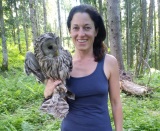
Dr. Ingrid Kohl (Austria), biologist, ecologist, ornithologist, Scientific Assistant at the Duerrenstein Wilderness Area www.wildnisgebiet.at in Austria (IUCN Category I, UNESCO World Heritage Site), grew up in nature in the Vienna Woods in Austria, observing nature, raising birds and founding a nature conservation society for the kids in the neighbourhood in the early 1990s. After completing a scientific school thesis about ornithology in 1999, she started working in ornithology, herpetology, entomology, and botany in 2000, before completing school and starting university in 2001. With the telemetry of raptors, she started in 2003 (goshawks) and with the telemetry of owls in 2009 (Ural owls). She completed her Master studies of Ecology at the University of Vienna in 2006, the European Master of Science in Geographical Information Science at the University of Salzburg in 2009 and completed her Ph.D. in Ecology at the University of Vienna in 2012. For the two Master theses and her Ph.D. thesis, she worked on ornithological topics in the Austrian Alps and in the whole Alps. From 2000 until 2019 she worked for universities and governments (e.g. University of Oxford in 2003). Since 2009 she has been working as a Scientific Assistant for the Duerrenstein Wilderness Area www.wildnisgebiet.at in Austria (IUCN Category I, UNESCO World Heritage Site), has been responsible for two long-term owl projects, owl excursions, owl education, and international collaborations. She attended the WOC 2017 at the University of Évora in Portugal in September 2017 www.woc2017.uevora.pt, presenting owl telemetry at a workshop and presenting the two long-term owl projects from the Duerrenstein Wilderness Area in Austria. Since 2017 she has been collaborating with the Global Owl Project GLOW www.globalowlproject.com and the South African Owlproject.org, organizing fundraising events, owl projects in schools and developing projects. In 2019 the Owls in Myth and Culture project from GLOW is being carried out in Austria and together with South Africa. She is very much looking forward to the WOC 2019 in Pune, India, http://www.wocindia2019.
 My work with owls started in 2001, with my Biology degree project on Barn Owl ecology. My master’s dissertation in Conservation Biology focused on the owl community in a silvopastoral system and my Ph.D. thesis in Biology focused on the Barn Owl as a biomonitor of environmental contamination. Member of LabOr, University of Évora team since 2004, I’m the executive responsible for the TytoTagus Project since 2006. I have broad interests in ecology and conservation, ecotoxicology, ethno-ornithology and transfer of scientific knowledge to society, with owls as a common line. I also co-coordinate the Nocturnal Birds Working Group (GTAN-SPEA) in Portugal.
My work with owls started in 2001, with my Biology degree project on Barn Owl ecology. My master’s dissertation in Conservation Biology focused on the owl community in a silvopastoral system and my Ph.D. thesis in Biology focused on the Barn Owl as a biomonitor of environmental contamination. Member of LabOr, University of Évora team since 2004, I’m the executive responsible for the TytoTagus Project since 2006. I have broad interests in ecology and conservation, ecotoxicology, ethno-ornithology and transfer of scientific knowledge to society, with owls as a common line. I also co-coordinate the Nocturnal Birds Working Group (GTAN-SPEA) in Portugal.
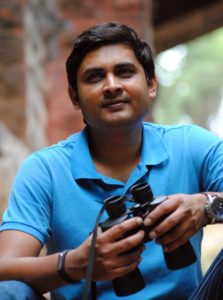 Website.
Website.
 Communication.
Communication.
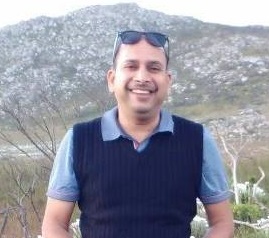 Travel Desk.
Travel Desk.
Swapnil is a Bachelor of Engineering. He is the owner at Daffodils Holidays, specializing in handling customized tours for visitors to India and arranging group tours globally. Actively involved with WWF and ELA Foundation, Pune, he is a Game Ranger at Kruger National Park and has worked in Peru and Namibia as research assistant. He is registered speaker at RSPB, UK and is the founder of Jhalana Wildlife Research Foundation (JWRF). Currently, he is pursuing his PhD on the human-leopard coexistence at Jhalana Forest Reserve, Jaipur under the supervision of Prof. Reuven Yosef, Ben Gurion University, Israel.
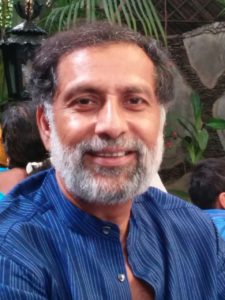 Food.
Food.
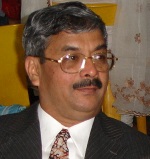 Finance.
Finance.
 Food.
Food.
 Organizing Committee – Ela Foundation.
Organizing Committee – Ela Foundation.
Organizing Committee – SPPU.
Organizing Committee – SPPU.
Organizing Committee – Ela Foundation.
Organizing Committee – Ela Foundation.
Communication.
Venue.
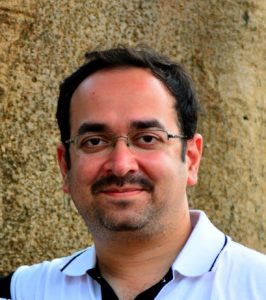 Logistics and Tourism.
Logistics and Tourism.
 Publications.
Publications.
Publications.
Venue.
Venue.
Banking.
Cultural programs.
Cultural Programs.
Cultural Programs – Swaroopvardhini.
Cultural Programs.
Cultural Programs.





